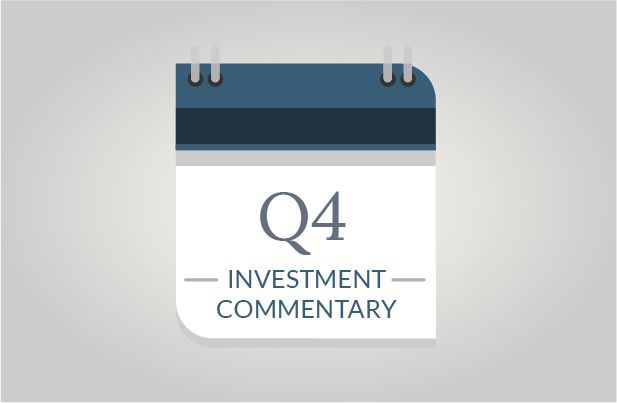- The coronavirus global pandemic besieged the world in 2020, impacting the health of individuals, businesses and the economy.
- The S&P 500 and Dow Jones Industrial Average reached new all-time highs by year-end, despite the ensuing pandemic.
- Political changes and unrest reached new heights.
A Terrible Year, Except for Stocks
The year of 2020 began with a booming economy, exceptionally low unemployment and a healthy stock market. However, the landscape of the world shifted abruptly as the coronavirus spread, becoming a full-blown global pandemic. The way of life, business, school and just about everything changed in 2020.
Stocks began declining in February and went into free fall in March when countries and businesses around the world sent people home in an attempt to halt the spread of the virus. By March 23rd, stocks declined by more than 30 percent and by April, the U.S. unemployment rate climbed to 14.7 percent. Fear gripped the world.
Despite millions of people contracting the virus, millions of people remaining unemployed and millions of business closures, the S&P 500 and Dow Jones Industrial Average climbed to all-time highs by year-end after staging the most rapid stock market recovery in history. The level of recovery for equity markets has been astounding and frankly perplexing to many. There have been many times when the stock market has defied all odds, but the year of 2020 could be the strongest example of that.
A Forward-Looking Stock Market
Stocks ascended to new highs in the past couple of months, all while Covid cases surged, political turmoil reached new levels, and employment figures began to lag. While it might seem astonishing, it’s not uncommon for stocks to rally in the midst of bad news. A key reason is the stock market is forward-looking, focusing more on business and economic prospects months and years in advance, versus on what’s currently happening. Hence, the stock market and stock investors are assuming a strong recovery on the horizon, particularly as vaccines begin to be administered.
Even so, this market’s performance is somewhat different. The pace of recovery has been astounding given the breadth of world impact. This market recovery was the fastest in history at a time when the U.S. posted its worst unemployment figures since 1948, when the data was first recorded. This does beg the question of whether stocks have recovered too quickly relative to the timeframe in which our country, the world and the economy will return to a greater sense of normalcy.
Government Stimulus to the Rescue
Beyond the markets being forward-looking, significant government stimulus has helped to prop up the economy and the markets. The level of financial intervention since March of 2020 has been seismic at trillions of dollars along with swift actions by the Federal Reserve Board to slash rates and support financial stability. Additional stimulus went into effect at year-end, and it’s widely anticipated that more will be extended before the pandemic is over.
While much of the stimulus money is helping individuals and families to afford the necessities of life, it’s also supporting the stock market. U.S. household savings increased by more than $1 trillion dollars in 2020 as the U.S. personal savings rate increased. People began saving more as they spent less on travel, entertainment, etc. A significant amount of the higher savings were allocated to investments, hence benefiting financial markets.
A Tale of Two Worlds in Society, Business and Investments
While the stock market as a whole has thus far experienced a strong “V-shaped” recovery, the true recovery in the economy and among investment sectors has been “K-shaped”. The letter “K” is illustrative of how segments of the population and businesses are recovering quickly while others are experiencing significant hardships.
If you’re in the tech sector or have a job that could easily shift to a work-from-home status, you’re likely doing pretty well. However, if you’re in the hospitality or energy sector, your experience has probably been vastly different. This is leading to a tale of two worlds in society, business and investments.
On the investment side of the equation, there’s been a long trend of “growth” stocks outpacing “value” stocks. Growth stocks are represented by companies that are expected to outperform, and that tend to pay low or no dividends. Value stocks are those with stock prices trading below their estimated fundamental worth and tend to pay higher dividends. Over extended periods of time, investing in value stocks has paid off handsomely. Value stocks have also typically performed well during market downturns as dividends can become an allure to investors. However, in recent history, value stocks have distinctly been out of vogue and they proved to be the laggards during both the 2020 market downturn and recovery.
As we look to 2021 and 2022, we question if growth stocks can continue to yield such strong returns, and if they could be trading at elevated levels. Conversely, we also see potential for a revival among value stocks as the pandemic hopefully draws to an end. Companies that have been beaten down could experience strong recoveries. We certainly hope that’s the case for stocks as well as for those who work in those sectors.
Political Changes
One thing that is certain for 2021 is a significant U.S. political change with Democrats largely taking control. While this transition has sadly brought immense unrest and confrontation, we would like to focus on the potential impacts to your investments and your finances.
Some investors are concerned that Democratic leadership could trigger a stock market decline. While no one can predict the future, we would like to make note of two realities:
- Stocks have prospered and declined under leadership from both political parties.
- U.S. stocks have risen since Joe Biden was announced as the presumptive President-elect, since the electoral votes were cast, and even as the Capitol building was stormed to protest Congress counting electoral votes and certifying the election results.
Hence, any outcome is possible for stocks. Looking beyond the stock markets to your broader finances, we offer two additional notes:
- We expect additional government stimulus to emerge in the near-term, which could serve to bolster household finances as well as stock market performance.
- Tax increases could distinctly be on the horizon. Changes could impact higher earners, capital gain rates (during lifetime and/or upon death), estate taxes and other areas.
Looking Forward
Every time there’s a crisis, it can pay off to learn lessons from the experience. As we look forward, perhaps the best lessons from 2020 are to recognize that anything can happen, that you can’t (and shouldn’t) time the markets, and that financial flexibility is important.
SageVest believes in following a disciplined approach with a long-term investment outlook. This approach benefited clients in 2020 as we bought into weakness. We also firmly believe in formulating and updating long-term financial plans to give you guidance and confidence. We recognize that many people have altered financial outlooks post 2020. We are here to help you formulate the best strategies moving forward in support of you, those you love and those you care about.
SageVest Wealth Management




